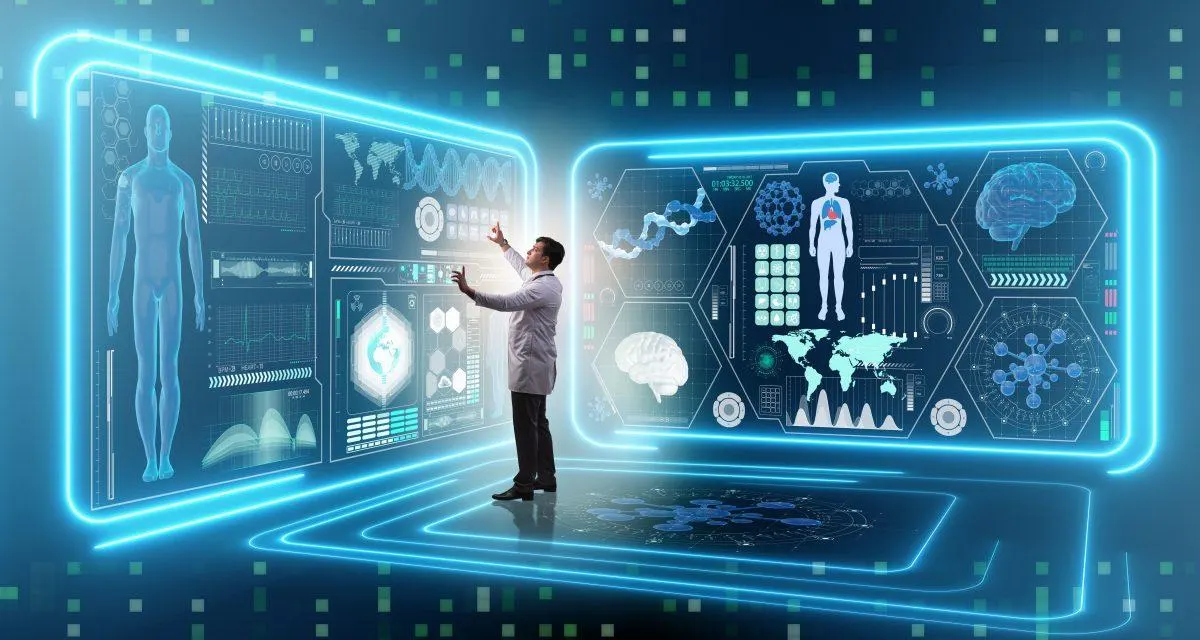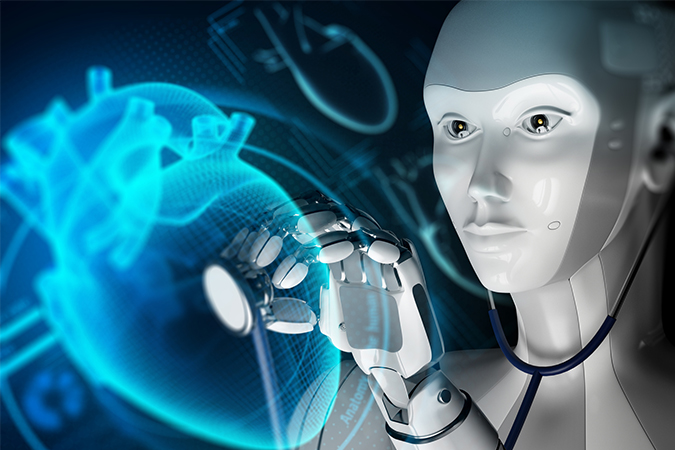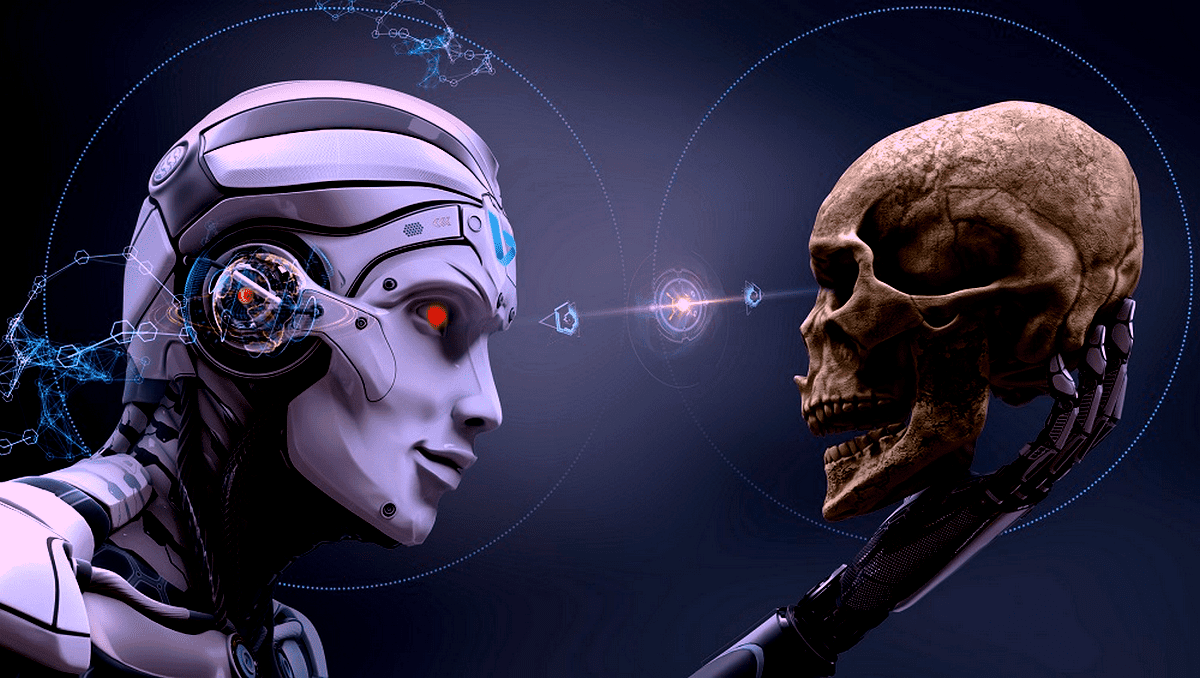Introduction
The integration of AI in Healthcare has started a great revolution, reshaping every aspect of medical care. From simplifying administrative tasks to revolutionizing diagnostics and treatments, AI is driving health tech innovation worldwide. This transformative synergy between intelligent algorithms and human expertise is starting in a new era of precision medicine, where early disease detection and innovative treatment approaches take center stage. Let’s delve into how AI is being used in healthcare and the significance of Intellectual Property Rights.
Overview
Historically, the healthcare industry has displayed a cautious approach toward integrating technology, which can be attributed in part to earlier setbacks in digitization efforts. A study has underscored that healthcare professionals have dedicated a substantial 49% of their time to administrative duties, leaving only a mere 27% for direct patient care. This imbalance, stemming from outdated systems, not only results in inefficiencies but also contributes to burnout and hasty diagnoses among clinicians. At the same time, the pharmaceutical industry faces its challenges. Developing a single product takes about ten years and costs around a huge USD 2.5 billion.
However, the progress made in automation and artificial intelligence (AI) offers hope for solving these problems. AI in Healthcare possesses the capability to automate approximately 33% of the manual tasks undertaken by healthcare professionals, thereby ushering in potential cost reductions. The incorporation of AI-powered technologies has the potential to generate savings exceeding USD 150 billion for the US healthcare sector by the year 2026. This encouraging projection has spurred substantial global investments in AI research tailored specifically to healthcare applications. Presently, AI’s self-learning algorithms have demonstrated their capacity to automate tasks and contribute to informed decision-making processes. (source)
AI-Powered HealthTech
- Robots: In healthcare, robots have transformed from optimizing operational tasks to enabling precise, minimally invasive surgeries. Companies like Diligent Robotics, Aethon, and InTouch Health streamline hospital operations, while Intuitive Surgical, Medtronic, Verb Surgical, and Auris Health enhance surgical precision, benefiting patients and providers worldwide.
- Medical Imaging Systems: Medical imaging has evolved from X-rays to advanced modalities like MRI, CT, and ultrasound, aiding precise diagnoses. AI-driven systems like GE Healthcare’s Edison and Siemens Healthineers’ AI-Rad Companion enhance image analysis, while companies like Arterys, Enlitic, and Zebra Medical Vision advance AI-powered medical imaging for improved healthcare outcomes.
- Personalized Care: AI-driven health assistants like Your.MD and Suki.AI offer personalized medical advice, while Babylon Health, CureMe, Oscar Health, and Welltok develop their versions. AI-powered EHR systems from GE Healthcare, Oracle, Cerner, Allscripts, and Epic analyze patient data for informed decision-making, treatment recommendations, and improved healthcare delivery.
- Analysis and Discovery: AI revolutionizes healthcare through predictive analytics like HealtheIntent, and Caboodle for disease prediction and drug discovery platforms like BenevolentAI, and Atomwise that accelerate candidate identification. These innovations hold the potential to transform patient care and reshape medicine’s future.
- Virtual Reality Therapy: VR therapy platforms like MindMotionPRO, AppliedVR, etc. with AI integration provide immersive rehab for patients. As AI improves, healthcare will see new and creative uses that will greatly change how services are provided.
What does the future hold?
The utilization of AI in the healthcare sector is experiencing a significant expansion. Presently, the worldwide market for AI in healthcare has exceeded a value of $10 billion. Furthermore, the count of startups operating at the intersection of healthcare and AI has surged by 75% within the last two years. AI is finding its application in an increasingly diverse range of healthcare domains, encompassing mental health support, telehealth services, precision medicine, and the detection of healthcare fraud. As AI advancements persist, it is foreseeable that the future will bring forth even more groundbreaking and inventive applications of AI in this field.
The forthcoming trends in AI-powered health tech are compelling. AI-driven virtual assistants will enhance patient engagement and personalized care. Robotic surgery, gene editing, and personalized medicine will revolutionize treatment approaches, ensuring precision and effectiveness. Healthcare fraud detection powered by AI will safeguard financial integrity. AI-powered clinical decision support, drug discovery, remote patient monitoring, and public health initiatives will optimize diagnostics, therapies, and preventive strategies. These trends collectively exemplify the remarkable potential of AI to improve patient outcomes, streamline operations, and foster innovation across the healthcare ecosystem. (source)
As AI’s capabilities evolve, it will catalyze transformative advancements. The integration of big data analytics, predictive algorithms, and machine learning will empower clinicians with actionable insights, revolutionizing disease prevention, diagnosis, and treatment. AI-driven telehealth and remote monitoring will enable greater accessibility, especially in underserved areas. Ethical considerations and data privacy will remain pivotal as AI reshapes patient care and healthcare management.
Ultimately, AI’s future in health tech holds the promise of more accurate diagnoses, efficient treatment pathways, reduced costs, and improved patient experiences. By collaborating across disciplines and addressing challenges, AI has the potential to realize a future where healthcare is increasingly patient-centric, data-driven, and technologically empowered. (source)
How can patents help?
Patents are instrumental in fostering the growth and development of AI in the healthcare technology sector. They play a pivotal role in encouraging innovation, protecting intellectual property, and facilitating collaboration among stakeholders. By offering inventors and companies exclusive rights to their AI-driven health tech inventions, patents incentivize investments in research and development, driving continuous advancements in healthcare technologies.
Moreover, patents safeguard novel ideas and technologies, preventing unauthorized use or copying, and ensuring that inventors and companies can benefit from their creations. The disclosure of patented technologies in public documents enables knowledge sharing, enabling other researchers and companies to learn from and build upon the innovation. As a result, patents contribute to the acceleration of technology transfer and the integration of AI health tech solutions into real-world healthcare settings.
Furthermore, patents can increase the value of a company’s assets, attracting investment and fostering partnerships with other players in the healthcare industry. Ultimately, by promoting competition and driving improvements in the quality and standards of AI health tech products, patents play a significant role in advancing healthcare and expanding access to medical innovations worldwide. (source)
AI Innovations and Patents
- In 2017, IBM was granted a patent for an AI-based system that can diagnose cancer from medical images which helped to protect its investment in research and development and to promote the adoption of its AI-based cancer detection system.
- In 2018, Google was granted a patent for an AI-based system that can personalize treatment plans for patients with diabetes and has helped Google to protect its intellectual property and to promote the development of new AI-based diabetes treatments.
- In 2019, Johnson & Johnson was granted a patent for an AI-based system that can detect and prevent healthcare fraud protect its intellectual property, and promote the adoption of its AI-based healthcare fraud prevention system.
- In 2020, Stanford University got a patent for an AI system that can foresee the chances of sepsis in patients. It has helped Stanford University protect its intellectual property and promote the development of new AI-based sepsis prediction systems.
- In 2021, Mayo Clinic received a patent for an AI system that detects Alzheimer’s disease from brain scans. This patent safeguards their ideas and encourages the creation of more AI-based tools for diagnosing Alzheimer’s.
- In 2022, Massachusetts General Hospital was granted a patent for an AI-based system that can personalize cancer treatment plans for patients. This patent has helped Massachusetts General Hospital to protect its intellectual property and to promote the development of new AI-based cancer treatments. (source)
Conclusion
The integration of AI into healthcare marks a transformative shift globally, streamlining tasks, revolutionizing diagnostics and treatments, and offering personalized, patient-centered care. AI’s data-driven insights empower medical professionals for improved outcomes. The promising future includes AI-driven virtual assistants, robotic surgery, gene editing, and personalized medicine, all supported by patents that incentivize innovation. As AI evolves, it will reshape healthcare, address challenges, foster progress, and enhance well-being on a remarkable scale.




